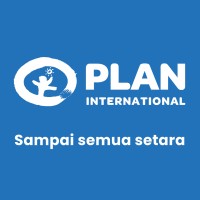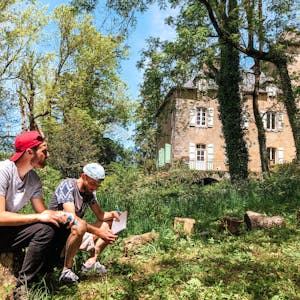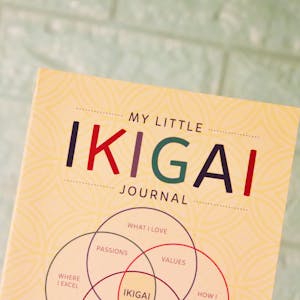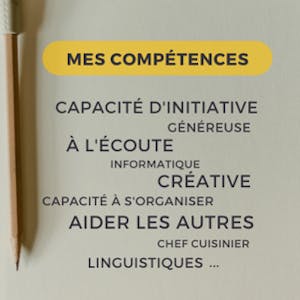Entrepreneurship in the territories: is it the right time?

We strive to advance children’s rights and equality for girls all over the world. As an independent development and humanitarian organization, we work alongside children, young people, our supporters, and partners to tackle the root causes of the challenges facing girls and all vulnerable children. We support children’s rights from birth until they reach adulthood and enable children to prepare for and respond to crises and adversity. We drive changes in practice and policy at local, national, and global levels using our reach, experience, and knowledge. For over 80 years, we have been building powerful partnerships for children, and we are active in over 80 countries.
Plan International recognizes that the climate crisis is intergenerational and gender injustice. Climate change amplifies the inequality and discrimination experienced by marginalized girls and young women. These girls will feel the greatest impact but will not have the information and resources they need to cope with. Plan International supports young people in understanding climate change, its impacts, and how they can adapt.
The Youth Leadership Academy (YLA) for Gender and Climate Action aims to address the challenges posed by climate change while fostering youth-driven initiatives and leadership. Despite their potential to revolutionize conventional practices and propel us toward an inclusive, equitable, and sustainable future, young leaders encounter persistent barriers to meaningful engagement. YLA serves as an action-focused educational platform, empowering young individuals to enhance their critical thinking, knowledge base, skills, and self-assurance in gender and climate advocacy, thus contributing to global impact. This equips them to discern and articulate the interconnectedness and mutual dependencies between the Paris Agreement on Climate Change and the 2030 Agenda for Sustainable Development across five dimensions of sustainable progress: People, Planet, Prosperity, Peace, and Partnership
The Youth Leadership Academy (YLA) Impact Report (Project Book) is a dynamic and holistic reflection of the YLA journey, capturing not only the outcomes and impact of the program but also the stories, voices, and milestones that shaped it. Designed as both a strategic report and a narrative-driven project book, it serves to document and communicate the YLA’s contribution to advancing youth leadership in gender equality and climate action across the Asia-Pacific region.
This report integrates evidence-based insights with human-centered storytelling, combining qualitative and quantitative data, youth reflections, and case studies to illustrate change at both individual and community levels. It provides a structured narrative of the program’s relevance, effectiveness, and impact, while also amplifying the lived experiences of young people leading change.
As a tool for accountability, learning, and advocacy, the Impact Report (Project Book) is intended for a wide range of audiences, including donors, implementing partners, participating youth, Government agency and general public. It highlights key achievements, lessons learned, and opportunities for future action, while also serving as a creative and visual record of the YLA’s journey from start to finish. By blending data with storytelling, this publication aims to inspire, inform, and engage, all while strengthening organizational learning and supporting the design of future youth-centered programs.
The YLA Impact Report (Project Book) is expected to include the following components:
A concise summary of key findings and highlights, accompanied by background information on the YLA program’s objectives, duration, scope, and geographical coverage.
A clear explanation of the data collection methods and tools used, including youth-led research efforts, participatory approaches, and any monitoring and evaluation frameworks applied.
An in-depth analysis of program outputs and outcomes, aligned with YLA’s intended goals and main outputs. This includes:
Personal narratives and group stories that illustrate the impact of YLA on youth participants and their communities, showcasing transformation, leadership, and advocacy in action.
Key insights, challenges, and recommendations drawn from the program’s implementation to inform future youth-centered initiatives.
An overview of the roles and contributions of donors, mentors, implementing partners, institutions, and other key stakeholders involved throughout the program.
Use charts, graphs, quotes, testimonials, and other visual elements not just to present data, but to tell a story. By adding context, highlighting key patterns, and explaining the meaning behind the numbers, these visuals should enhance both the accessibility and engagement of the report.
Supplementary materials such as survey instruments, raw data summaries, detailed activity logs, and other relevant documentation as needed.
The YLA Impact Report (Project Book) is developed with the following key objectives:
The YLA Impact Report will be developed using both qualitative and quantitative data collection methods to provide a comprehensive understanding of the program’s impact.
The selected consultant will collect relevant data from 5–10 YLA Main Project team members, 40 youth ambassadors across 5 countries, 20-25 target participants in each project area (or depending on the number of intervention regions and total participants in each country), and 2–5 local stakeholders or implementing partners per country, employing participatory approaches where applicable.
Data collection methods may include, but are not limited to:
Structured questionnaires designed to collect quantifiable data on participants’ experiences, knowledge, attitudes, and behavioural changes resulting from their engagement in the YLA.
Facilitated group conversations that explore collective insights, perceptions, and feedback on the program’s effectiveness and areas for improvement. The report should highlight diverse youth voices and provide contextual insights into the challenges and successes encountered throughout the program cycle.
One-on-one interviews that provide detailed, personal perspectives from participants, mentors, or stakeholders regarding the impact and value of the YLA.
Systematic examination of existing program documents, reports, training materials, and monitoring data to extract relevant evidence and contextual information.
Comprehensive, focused accounts of individual or group journeys within the program, used to illustrate specific outcomes, challenges, and success factors.
All data collection and analysis activities must adhere to the Ethical Monitoring, Evaluation, Research, and Learning (MERL) Framework in the annex. This includes ensuring informed consent, safeguarding participant privacy, and upholding data confidentiality and integrity throughout the process.
The selected consultant or consultancy team will be responsible for leading the development of the YLA Impact Report, in close coordination with Plan International’s team and relevant stakeholders. The scope of work will include, but is not limited to, the following key tasks:
Interested applicants should provide a technical and budget proposal covering the following aspects:
The selected consultant or consultancy team is expected to be capable of collecting and analyzing information from various sources, engaging with youths and stakeholders, working collaboratively, and presenting information clearly and concisely. The required qualifications as follow:

Affiliated with Plan International, we advance children’s rights and equality for girls in Indonesia.
Discover all the resources to inspire and guide you in the world of positive impact. Testimonials, analyses, job descriptions and skills of tomorrow, everything you always wanted to know without daring to ask.






You no longer thrive in your work, and you plan to change profession to find more meaning in your professional life? Discover the resources to help you think about a retraining project and find your way.